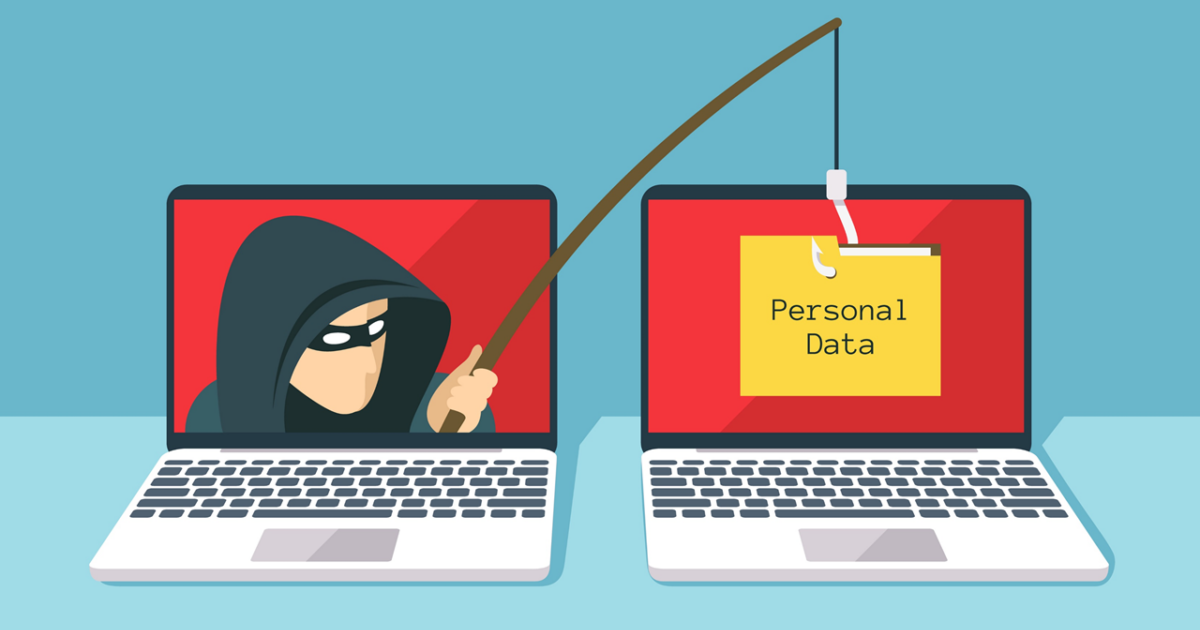Introduction: The Preemptive Strike in Cybersecurity
In a world increasingly dominated by cyber threats, the phrase “hack yourself before someone else does” might sound provocative or extreme. But in the context of cybersecurity, it’s more than just a catchy slogan—it’s a call to action. The idea is simple: rather than waiting for hackers to find vulnerabilities in your systems, applications, and processes, why not take the initiative and try to exploit those weaknesses yourself?
By adopting this mindset, individuals and organizations can uncover hidden vulnerabilities before malicious actors have the chance to exploit them. In this article, we’ll explore why this proactive approach is crucial, how to implement it, and the benefits of hacking yourself—whether you’re an individual, a small business, or a large organization.
1. The Changing Threat Landscape
1.1 From Opportunistic to Strategic Attackers
Cyber threats today are not just random acts of mischief or opportunistic attacks. Hackers have become sophisticated, organized, and well-funded, often backed by criminal enterprises or even nation-state actors. Their tactics are far more strategic, and they leverage a variety of tools and techniques to exploit even the smallest vulnerabilities.
The reality is, cybercriminals don’t wait for the perfect moment to strike—they take advantage of any opening they can find. This is where the concept of hacking yourself comes into play: by actively searching for vulnerabilities in your own systems, you can eliminate potential attack vectors before the attackers even have a chance to exploit them.
1.2 Reactive vs. Proactive Security
Most traditional security practices are reactive. A breach happens, and then you respond. But with today’s ever-evolving threats, reactive security isn’t enough. Many breaches go undetected for months or even years, and by the time you respond, the damage has already been done.
Proactive security, however, is about getting ahead of the threat. It’s about looking at your systems with the mindset of an attacker and addressing weaknesses before they’re exploited. This proactive stance is not just about defending—it’s about preemptively securing what matters most.
2. What Does “Hack Yourself” Actually Mean?
2.1 Ethical Hacking: Testing Your Defenses
When we say “hack yourself,” we’re referring to ethical hacking, which involves deliberately testing your own systems, processes, and infrastructure for vulnerabilities. This is also known as penetration testing or red-teaming. By simulating a real-world attack on your environment, you can identify and fix weaknesses before anyone else does.
Ethical hackers (also called white-hat hackers) use the same techniques as malicious hackers but do so with permission and for the purpose of improving security. This process helps uncover security holes that might otherwise go unnoticed, including weak passwords, misconfigurations, or unpatched software vulnerabilities.
2.2 Testing the Whole System, Not Just the Technology
While technical vulnerabilities are often the most obvious targets, they aren’t the only weakness. The human element plays a significant role in cybersecurity breaches. Social engineering, phishing attacks, and simple human error are often the easiest paths for attackers to gain access.

“Hacking yourself” also involves testing how people within an organization or even individuals handle these types of attacks. For example, could an attacker trick your employees into divulging sensitive information? Are your employees vulnerable to phishing emails? Is the process for resetting critical passwords secure enough to prevent unauthorized access?
3. Why It Makes Sense
3.1 Identify Weak Points Before Attackers Do
The primary reason to hack yourself is to find the weak points in your systems and processes before the bad guys do. By conducting internal penetration tests, vulnerability assessments, and security audits, you’re essentially doing the work that an attacker would—except you’re doing it with the intent to improve, not to exploit.
The earlier you find vulnerabilities, the easier and cheaper they are to fix. For example, an unpatched software bug might allow an attacker to gain access to your system. If you identify it early, you can patch it before it becomes a major issue. On the other hand, if you wait for an attacker to find it, the damage can be far greater.
3.2 Save Time, Money, and Reputation
Responding to a breach after it happens is not only costly—it’s also time-consuming and damaging to your reputation. The fallout from a data breach can include loss of customer trust, legal fees, fines, and reputational damage. According to industry reports, the average cost of a data breach continues to rise year after year, with some breaches costing companies millions of dollars in damages.
On the other hand, proactively finding and fixing vulnerabilities is far more cost-effective. You can prevent the breach from happening in the first place, saving both money and reputation. It’s like performing regular maintenance on your car to avoid expensive repairs down the road.
3.3 Enhance Organizational Security Culture
When an organization adopts a proactive security mindset, it sets a culture of vigilance and resilience. Hacking yourself is not just about finding technical flaws—it’s about cultivating a culture where security is integrated into everyday workflows. From the development team writing secure code to employees undergoing regular security training, building a proactive security culture helps protect against a wide range of threats.
A culture that embraces ethical hacking also encourages innovation in security practices. It leads to continuous improvement, where security becomes a shared responsibility rather than an afterthought or a reactive measure.
4. How to Hack Yourself: A Step-by-Step Guide
4.1 Set Clear Goals and Boundaries
Before you start hacking yourself, it’s important to set clear goals and boundaries. What systems will you test? Which processes will you assess? Are there specific types of attacks you want to simulate, such as phishing or social engineering?
Equally important is defining the boundaries of your testing. Ethical hacking must be done within the limits of what is authorized, and it should not disrupt your operations or data. It’s crucial to communicate your plans with your team or clients to ensure everyone is on the same page.
4.2 Use a Simulated Attack Approach
The most effective way to hack yourself is to simulate real-world attacks. Consider the common attack methods hackers use, such as:
- Reconnaissance: Scanning your systems, public profiles, and data for weaknesses.
- Exploitation: Testing for common vulnerabilities like unpatched software or default credentials.
- Persistence: Checking if attackers can maintain access once inside.
- Exfiltration: Testing how data might be exfiltrated from your environment.
By walking through each stage of an attack, you gain a comprehensive understanding of where your vulnerabilities lie. This allows you to fix issues before an actual attacker could use them.
4.3 Test the Human Element
Humans are often the weakest link in any security system. To truly hack yourself, you must also test your organization’s susceptibility to social engineering and phishing attacks. A simple email designed to steal login credentials or trick someone into downloading malware can have devastating consequences.
You can run internal phishing campaigns or train employees to recognize suspicious behavior. Regular security awareness training and simulated attacks can help your team develop the skills to resist manipulation.
4.4 Prioritize and Remediate Vulnerabilities
Once you’ve identified vulnerabilities, it’s time to prioritize and address them. Not all weaknesses are equal, so focus on fixing the most critical ones first. For example, unpatched software or weak authentication protocols should be addressed immediately, while minor configuration issues can be resolved over time.

Keep track of your findings, assign ownership for each issue, and create a timeline for remediation. It’s important to hold yourself (or your team) accountable for fixing issues promptly.
5. Overcoming Challenges in Self-Hacking
5.1 Legal and Ethical Boundaries
Before you begin hacking yourself, make sure that your actions are within the boundaries of the law and your organization’s policies. Unauthorized hacking, even if done with good intentions, can lead to legal consequences.
Always ensure that you have explicit permission to test the systems and infrastructure you’re targeting. This is especially important in larger organizations, where you may need written authorization from management or the IT department.
5.2 Don’t Overestimate Your Security
While it’s important to take pride in your security measures, it’s equally important not to develop a false sense of invulnerability. Hackers are always evolving their tactics, and new vulnerabilities are discovered daily. Don’t assume your systems are bulletproof—regular testing is necessary to stay ahead.
Remember, even the most secure environments have weaknesses. The key is to identify and patch them before they can be exploited.
5.3 Keep Testing Regularly
Hacking yourself shouldn’t be a one-time event. It’s an ongoing process. New threats emerge constantly, and as your systems evolve, so do the potential attack vectors. Make self-hacking part of your regular security routine, whether it’s quarterly vulnerability assessments, monthly phishing tests, or ongoing system scans.
By testing regularly, you ensure that your defenses are always up to date and that you’re prepared for the latest attack strategies.
6. The Human Factor: Why Personal Self-Hacking Matters
6.1 Personal Security in a Digital World
In today’s interconnected world, cybersecurity is not just for businesses—individuals must also take charge of their digital safety. Simple measures like using strong, unique passwords, enabling two-factor authentication (2FA), and being cautious about what you share online can go a long way in protecting yourself from attackers.
Regularly auditing your personal accounts, reviewing app permissions, and checking for data breaches are all ways to “hack yourself” and reduce the likelihood of falling victim to cybercrime.
6.2 Don’t Wait for a Breach
A common misconception is that cyber attacks only happen to large organizations or those with valuable data. In reality, individuals are often targeted because they are perceived as easy targets or because they lack adequate security measures.
By actively working to secure your personal digital space, you make it more difficult for attackers to succeed. Whether you’re securing your home network, reviewing your online privacy settings, or running regular security scans on your devices, being proactive reduces the chances of becoming a victim.
Conclusion: Stay One Step Ahead
In the world of cybersecurity, the phrase “hack yourself before someone else does” serves as both a warning and a strategy. By actively testing and improving your own systems and processes, you reduce the likelihood of falling victim to a malicious attack. This proactive mindset is essential not only for organizations but also for individuals in today’s digital age.
As cyber threats continue to evolve, so too must our approach to security. Regular ethical hacking, vulnerability testing, and fostering a culture of vigilance can make all the difference between staying ahead of attackers and becoming their next target. The more you invest in your own security, the more resilient you become to the ever-growing threat of cybercrime.
By taking control of your own digital fate, you ensure that you’re never caught off guard—and that when an attacker does come knocking, you’ll be ready.











































Discussion about this post